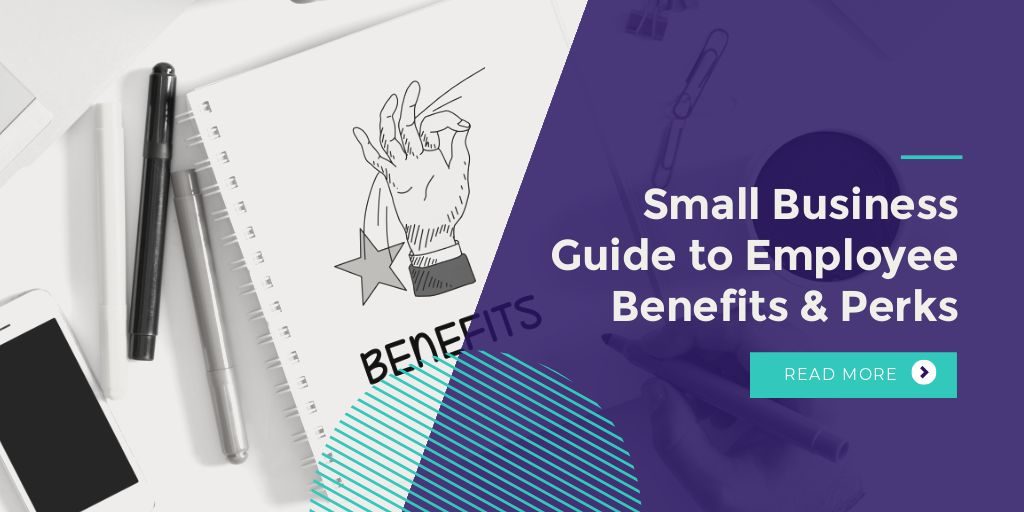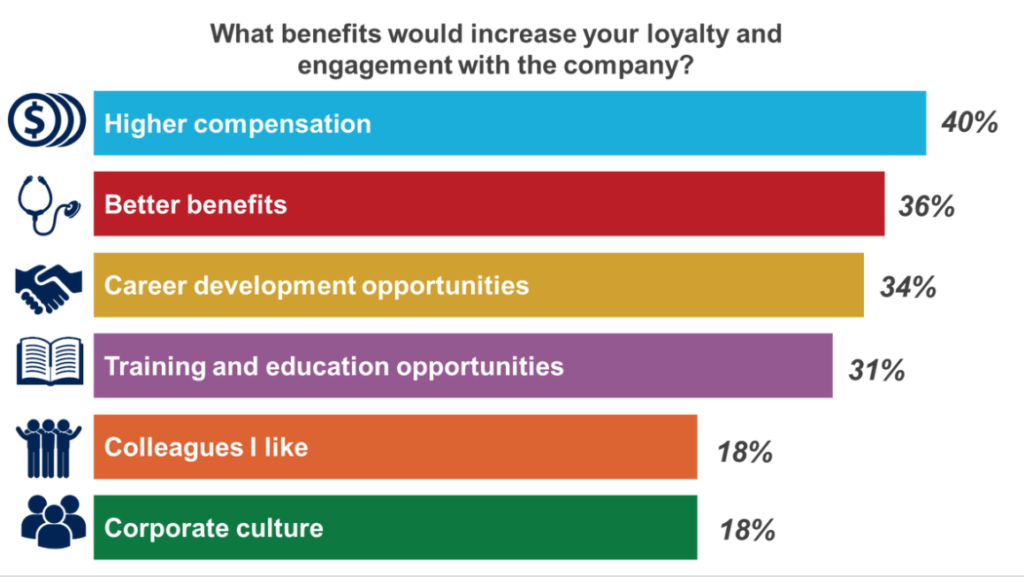
Small, growing businesses need to think about how to attract and retain employees. While traditional benefits packages are most desirable for job seekers, there are options for smaller businesses that want to offer competitive benefits. There are many creative ways to offer employee competitive benefits and compensation packages, even if they’re less traditional.
Benefits vs. Perks
Employee Benefits
Traditional employee benefits, according to People Keep.com, are defined as “indirect, non-cash, or cash compensation paid to an employee above and beyond regular salary or wages.” Benefits provide employees with basic needs.
They cover a wide range, but the most common employee benefits are:
- health care
- paid time off (sick or vacation days)
- retirement programs or accounts
- dental/vision/life insurance
- bonuses/incentives
- and tuition reimbursement
If your business is classified as an applicable large employer (ALE) by the IRS, the employer shared responsibilities mandate applies to you. Businesses not classified as ALE (has under 50 employees) is exempt from the penalty.*
Understanding your responsibilities as an employer is very important. Consequently, if your company is an ALE and you do not offer the required provisions (like health insurance), you can be penalized.
Learn more about Employer Shared Responsibility Provisions on the IRS website. Additionally, you can find all Affordable Care Act legal guidance and resources here.
What are Employee Perks?
Perks are typically things that help an employee perform their job better. Things like a company car, monthly dining/entertainment allowance, hotel discounts, catered office lunch, gym memberships, and standing desks.
Likewise, perks are often auxiliary and are separate from compensation like salary or wages. Another word for a perk might be incentives, bonuses, or rewards.
Performance-Based Incentives
Another type of perk could be performance based. Recognizing employees who are performing well by rewarding them is an excellent way to show appreciation. Not feeling appreciated is one of the number one reasons employees leave a company.
For example, companies like OfficeVibe have created software that helps leaders and managers create employee recognition programs, and makes it easy for feedback and open communication between employees and leadership — the perfect recipe for healthy workplace culture.
What does this mean for small businesses?
According to a Workforce 2020 Survey, second to higher compensation, the right benefits and perks will increase employees company loyalty and engagement.
Depending on the size of your business, you may not be required to offer traditional benefits like health insurance and retirement. But don’t let this stop you from creating a competitive benefits package! Get creative.
Here are a few ideas to consider:
- Offer employees a stipend, and encourage them to use it for health insurance.
- Provide company equipment like a cell phone, computer, or standing desk.
- Develop a custom wellness program.
- Invest in off-site training and workshops for your team.
- Offer a relaxing lounge with complimentary coffee or snacks.
- Allow flexible working arrangements.
In Staples 2019 Workplace Survey, 90% of workers reported that more flexible work arrangements would increase employee morale and 67% would consider leaving the job if it became less flexible.
In conclusion, benefits are what people need, and perks are what people want. Not every small business will be in a position to implement all of the benefits and perks mentioned, but attracting and retaining the best employees with a customized offering for your business is critical for company growth.
Check out these creative perks and benefits ideas from other companies for inspiration.
The content of this post is for informational purposes only and is not legal or tax advice. Consult with an employment law attorney or CPA before making important decisions on employee benefits.






